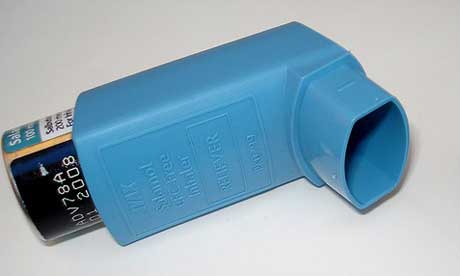
Asthma and allergies are on the rise, but they needn't curb your travel plans. Here we help you see the world without wheezing
Around one in ten people suffer from asthma and approximately one in 100 people from Western countries experience severe allergic reactions. The scary thing about allergies and asthma is that reactions can hit you unexpectedly. But once you’ve had such a reaction does that mean you are at increased risk of some disaster on your travels? And does such a past history of illness preclude safe travel to remote destinations
Your risks will partly depend on the severity of any allergic reactions or wheezy episodes. Generally, if your previous symptoms have settled with two or three antihistamine tablets or a few puffs of a salbutamol (usually blue) inhaler then you are at low risk of a huge flare-up on your travels. However, if you have needed more than one kind of inhaler and/or you’ve been prescribed a course of steroid pills, that suggests you might need to prepare more carefully.
The person best qualified to help is your GP – the doctor that has monitored and treated you over the years will know how ‘brittle’ or unstable you are and how likely it is that you’ll need a spell in hospital or on a nebuliser. They will also discuss with you what additional medical supplies you might need. Some people with brittle asthma or other allergic conditions take montelukast (Singulair) chewable tablets in addition to their regular medication.
Those needing to travel with an Epipen might need a doctor’s letter to show to airline staff; this is needed to authorise personal use. There is a sample letter to give to your doctor at foodallergy.org.
It is important to take plenty of your usual inhalers with you, with sufficient supplies to allow for luggage to be lost and for impromptu extensions to your stay. Canny travellers keep inhalers in their hand luggage – airline staff are usually sympathetic to this – but even carry-on items can get lost or forgotten.
When arranging medical insurance you must, of course, declare your asthma. Good insurers give you peace of mind but also provide telephone advice on the best local hospitals. Don’t skimp on insurance but also do your homework. Country guidebooks are also a good source of information about local health facilities.
Asthma and allergies are very unpredictable, and travel increases the unpredictability of exposure to allergens. Arrival in a polluted capital city on a bad day could make you ill. For instance, Bangkok and Jakarta’s air can be very high in sulphur dioxide; Mexico City is notoriously polluted; and Kathmandu just before the monsoon can carry such a burden of trapped filth in the air that it stings your eyes.
People who have asthma, hay fever or eczema, or suffer from attacks of urticaria (nettle rash) are more sensitive to environmental allergens than most, and are more likely to experience serious allergic reactions. All these medical conditions are linked, and special sensitivities are common. It is therefore a good idea to travel with an antihistamine preparation that you know suits you and is effective. Cetirizine (eg Zirtek) and loratadine (eg Clarityn) are good, non-sedating preparations. The Food Allergy Alliance also has some useful information for travellers on – for example – availability of antihistamines.
If you know what provokes your allergic reaction, it may be worth acquiring a MedicAlertwww.dietarycard.com bracelet or pendant. It is also possible to arrange cards in different languages explaining your sensitivities. These are especially useful if you are highly allergic to certain foodstuffs, such as peanuts. Cards in European languages are reasonably easy to organise (see or www.allergyaction.org) but some oriental language translations can be arranged through World Lingo.
Severe allergy is a very scary condition and is unfortunately increasingly common – perhaps one in 200 Brits are significantly allergic to nuts. That said, it is important to discuss your particular condition with your doctor, since it’s not unusual to over-estimate the risk of a severe reaction to exposure.
Some peanut-allergic people express concerns about the risks of exposure to aerosol traces of peanut on planes. Increasingly airlines avoid carrying peanuts despite the fact that even a severely allergic person is likely to experience little more than sore eyes and a runny nose in these circumstances. For details, see www.anaphylaxis.org.uk.
The secret of reducing your risks of bad health experiences is in your preparation. Those with a specific health problem should travel with a good knowledge of the problem, of the treatments that work well for it, the generic names of any medicines and adequate insurance. Also, have ready access to money in case of an emergency hospital admission. Thus forearmed, you won’t need it.